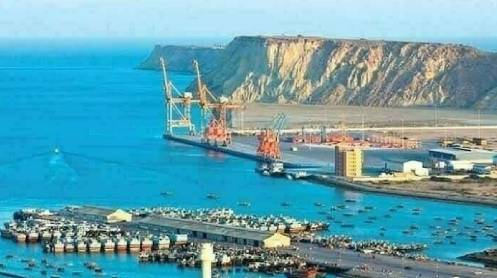ISLAMABAD: The government has approved the annual plan for the budget 2024-25, marking the commencement of the second phase of the China-Pakistan Economic Corridor (CPEC). This phase will emphasize industrial cooperation, agricultural modernization, socioeconomic development, and scientific collaboration, alongside ongoing infrastructure and energy projects.
Key initiatives in infrastructure include the strategic Mainline-1 (ML-1) railway project, which is set to achieve significant milestones in 2024-25, promising to enhance the country’s logistics performance. Additionally, future projects in the mining sector are on the agenda.
For Industrial Cooperation, four special economic zones (SEZs)—Rashakai, Allama Iqbal Industrial Zone, Dhabeji, and Bostan—are prioritized. With essential utilities being expedited, these zones are expected to see several industrial units commence production.
In agriculture, the focus will be on increasing the productivity of major crops, value addition, export enhancement, reducing post-harvest waste, pest and disease control, and human resource development. The development of agricultural mechanization is also planned to boost efficiency and innovation in the sector.
Science and Technology cooperation will be reinforced through people-to-people exchanges, joint laboratories, science parks, and technology transfer under the BRI Science, Technology & Innovation (STI) Action Plan.
In the socioeconomic sector, 17 out of 27 identified projects in poverty alleviation, health, education, vocational training, agriculture, and water supply will be fast-tracked for implementation in 2024-25. The scope and content of the remaining 10 priority projects have been shared, with letters of exchange (LoEs) to be signed within the planned year.
Security cooperation under CPEC will be enhanced through memorandums of understanding (MoUs), aiming to provide comprehensive security for CPEC projects and beyond.
Future power sector projects under CPEC will lay a stronger foundation for energy cooperation. The ‘Development Plan of Oil & Gas for Pakistan’ will address petroleum-sector projects.
Tourism will also receive attention under the CPEC framework, with plans for coastal tourism, eco-tourism in Gilgit-Baltistan, and integrated tourism zones in KP.
The second phase aims to capitalize on the investments made during the first phase (2015-20), which created an enabling environment by addressing gaps in infrastructure and energy.
The next Joint Cooperation Committee (JCC) meeting of CPEC is scheduled for the third quarter of FY25, with several deliverables identified for the year.
Summary of targets and action plans for 2024-25:
Completion of the 884-MW Sukki-Kinari Hydropower Project by November 2024.
Initiation of physical work on two hydropower projects, the 1,124-MW Kohala and 700.7-MW Azad Pattan, along with the 300-MW Gwadar Coal Power Project.
Implementation of the ‘Development Plan of Oil & Gas Sector of Pakistan,’ including coal-to-gasification/liquid projects in Thar and the North-South gas pipeline, as guiding documents for PSDP spending in the energy sector.
Story by Mehtab Haider







